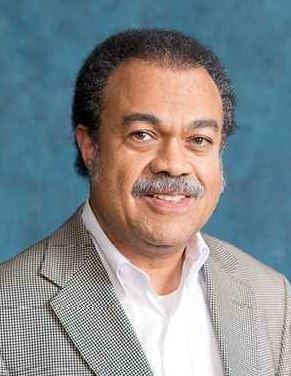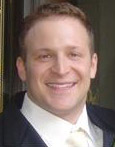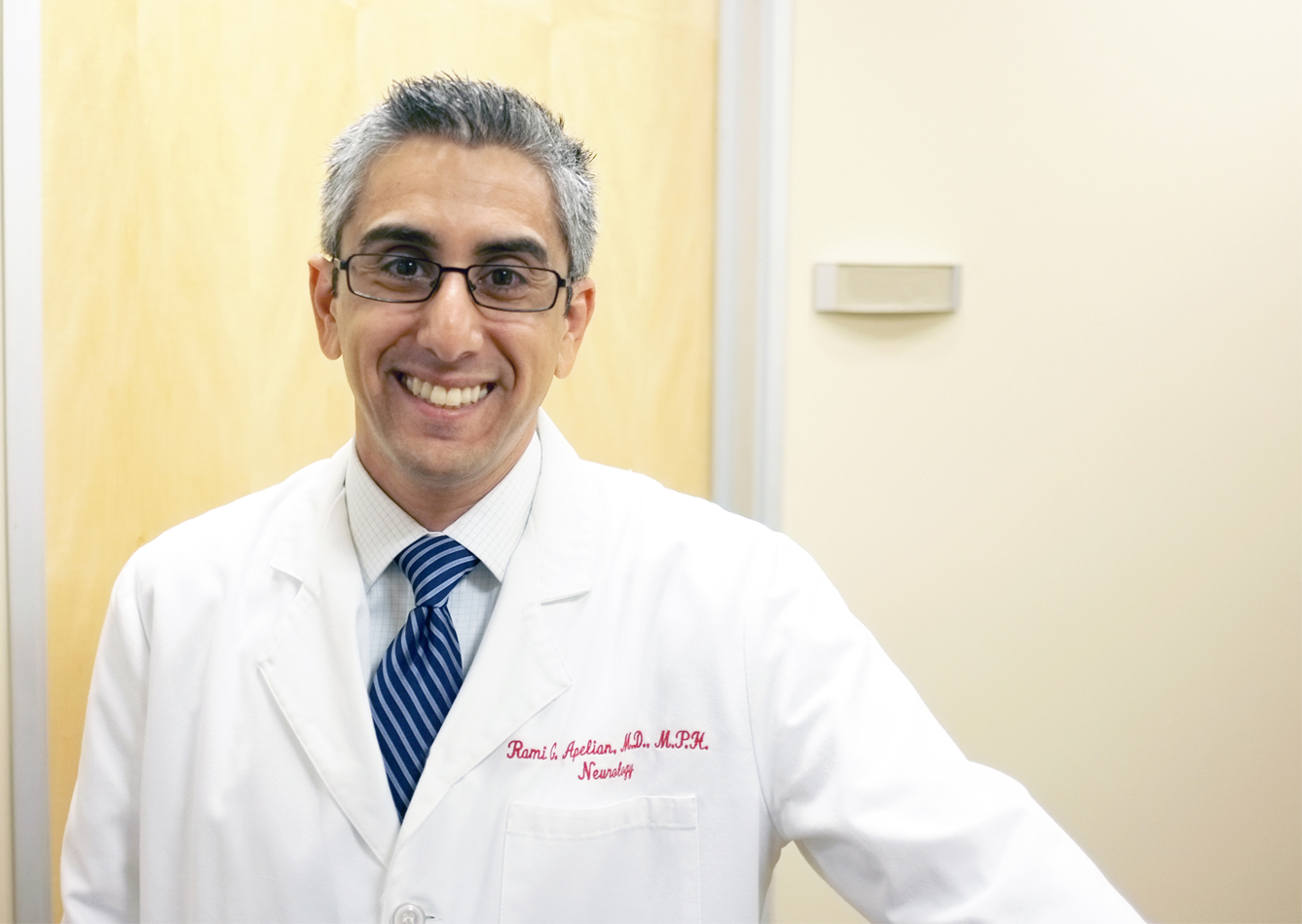Dr. Richard A. Spitzer, MD
Neurologist | Neurology
50 Alessandro Pl Suite 120 Pasadena CA, 91105About
Dr. Richard Spitzer is a distinguished Neurologist in Pasadena, CA. Dr. Spitzer specializes in diagnosing, treating, and managing disorders of the brain and nervous system. With expertise in handling complex conditions like epilepsy, multiple sclerosis, and migraines, Dr. Spitzer employs advanced techniques and personalized treatment plans to improve patient outcomes. As a neurologist, Dr. Spitzer is committed to staying abreast of the latest developments in neurological research and therapies.
Education and Training
Albert Einstein College of Medicine - Yeshiva University 1969
Board Certification
neurology
Provider Details
Dr. Richard A. Spitzer, MD's Expert Contributions
What is the best test for a concussion?
There's really no such thing as a "a test for a concussion." Put another way, a diagnosis of concussion is a so-called "clinical diagnosis" meaning a diagnosis made "at the bedside" [or in an office] based on the history of the event(s) ie the signs symptomos as they started and evolved over time, and the bedside (or office) physical examionation of the patient. The key features that lead toa diagnosis of concussion are (1) a closed head injury, and (2) a sudden and transient loss of consciousness, which may be followed by a period of confusion. There are certainly tests that may be done in those circumstances, either in an ER or subsequently in a neurologist's office, that may show there's more going on than a mere concussion. For example, a CT study demonstrate bleeding inside the cranial cavity might indica that in addition to a concussdion the patient has suffered, for example, a subdural or epidural hematoma (a blood clot which exerts inward pressure on the brain, and which has to be removed either emergently or less-urgently), or a cerebral "contusion" which indicates actual bruising of the cerebral cortex. In a "typical" concussion the CT and/or MRI are usually normal, and show no such additional pathology, and the exam usually shows little except confusion which gradually (sometimes quickly; sometimes not) clears up. Thereno specific treatment for a concussion either, other than the passage of time, i.e. waiting out the expected improvement of the confusional phase. Some people have a lengthy, delayed recovery after a concussion, a so-called post-concussive syndrome, w/ persisting headache, dizzyness, "brainfog", difficulty concentrating, etc. Usually this too resolves fully, though sometimes takes weeks-months. READ MORE
Nerve damage?
This is a very unusual scenario. I believe there are two problems, one of which sounds like it's a true constellatiion of neurologic symptoms; and the other a psychophysiological respopnse to those symptoms. What I refer to as "true...neurologic symptoms" includes the discomfort and hypersensitivity in the mid-back; and the longstanding (since childhood) shock-like sensation felt through the entire body with certain head or neck movements, and which may indeed be a Lhermitte sign (or symptom" though it's extraordinarily rare to experience that on a decades-long basis. A Lhermitte sign is often an indicator of some sort of intraspinal parthology, and has been described in MS affecting the spinal cord, but also in many other types of problems involving the spinal cord inside the spinal canal. All of that requires a thorough workup including a very careful clinical exam, and imaging (preferably MRI) of the spine. Neither MS nor a tumor are likely answers here -- MS doesn't usually begin at such an early age and produce only a single persisting symptom; and spinal tumors also are rare so early in life, and get larger and symptoms worsen oiver months-years as they grow. So something, perhaps congenital and structural involving the spine and/or spinal cord, but not likely MS nor a tumor. Something else --- to be determined. What I refer to as a "psychophysiologic response" is the group of events set off by the massage, including first a general feeling of discomfort and uneaase; then nausea, lightheadedness, pallor, and fainting, succeeded by fear, confusion, and exhaustion. This is the onset and evolution of an episode of so-called "vaso-vagal syncope" which is a physiologic response to pain, fear, etc, and which is not a specific disease but a reaction -- both psychological and physical -- to pain and/or fear of almost any sort. It can be as straightforward as a normal but anxious person fainting at the sight of blood or an injection of medication or a minor but painful injury. It's basically a fainting spell. It's not a stroke, nor an epileptic seizure, or anything truly serious. The possibly and potentially serious aspect of this case is the first group of symptoms described above, which warrant a search for a real problem of some sort affecting the spine and/or spinal cord. READ MORE
Treatments
- Peripheral Neuropathy
- Diabetic Neuropathy
- Neuropathy
- Parkinson's Disease
- Pinched Nerve
- Dementia
- Pain
- Trigeminal Neuralgia
- Vascular Disease
Internships
- New York Presbyterian Hospital
Dr. Richard A. Spitzer, MD's Practice location
Pasadena, CA 91105Get Direction
Dr. Richard A. Spitzer, MD's reviews
Write ReviewPatient Experience with Dr. Spitzer
- Anonymous
Neurologist Needs Psychiatrist.
Media Releases
Get to know Neurologist Dr. Richard A. Spitzer, who serves patients in Pasadena, California.
Well-versed in the field of neurology, Dr. Spitzer works with patients at his private practice in Pasadena, California.
Back in the early days of his academic career, he graduated with his medical degree from the Albert Einstein College of Medicine in 1969. He completed his internship at the New York Presbyterian Hospital in 1970, and his residency in internal medicine at the Montefiore Medical Center in 1974. Finally, he completed a residency in neurology at the Icahn School of Medicine at Mount Sinai in 1977.
In pursuit of clinical excellence, the doctor is board-certified in neurology by the American Board of Psychiatry and Neurology (ABPN). The ABPN is a not-for-profit corporation dedicated to serving the professions of psychiatry and neurology.
Neurology is a branch of medicine dealing with disorders of the nervous system. Neurologists are licensed medical specialists who diagnose and treat disorders that affect the brain, spinal cord, nerves, and muscles of patients. They examine a patient’s mental and physical status, conduct medical tests and scans, and evaluate the results to diagnose and treat the patient.
Recommended Articles
- Tommy Hilfiger Now Offers Clothing Line For People With Disabilities
Coming down with a chronic disease or being born with a disability can be a very serious issue, especially if left untreated. As most know, a condition like Duchenne muscular dystrophy can alter the patient’s lives, forcing them and their caregivers to adopt different lifestyle habits to...
- Multiple Sclerosis: How it Feels to Live with a Progressive Disease
When spring kicks in, you might be hyper-aware now of everything you've done, good and bad, since last year at this time. Maybe you're mulling over what you haven't achieved, or the weight you didn't lose that you promised as a New Years's resolution. Instead of being happy, you are sad with a...
- How to Handle Talking About MS with Family
Talking to loved ones about any chronic illness can be difficult, yet it’s an important conversation to have with individuals who will continue to be a part of your life’s journey. Opening dialogue creates the space for both you and your family to gain clarity and to establish trust and...
- Soon Lab Grown Muscle Fibers May Help in Duchenne Muscular Dystrophy
Duchenne muscular dystrophy (DMD) is one of the most common forms of inherited dystrophies today. It touches mainly young boys, and the majority of those with DMD become wheelchair ridden by their teenage years, and most would not expect to live into their 30's. Currently, there is not an effective...
- Common Multiple Sclerosis Treatments: An Overview
A debilitating disease that was once the face of a crushing and “hopeless” diagnosis has evolved from having one effective treatment to multiple effective treatments. Longtime sufferers who didn’t respond to one medication now have options to try others, to participate in a clinical trial or...
- Concussions During Teen Years Increases Multiple Sclerosis Risk in Adulthood
A new study suggests that certain factors regarding the brain development of teenagers could give insight into how multiple sclerosis develops in some patients. This could be a great lesson in how to decrease the risk of MS, as well as how the disease develops in general.The StudyThe study, which...
Nearby Providers
- Dr. Regina Berkovich MD8727 Beverly Blvd W Hollywood CO 90048
- Dr. Mohsen Mahmoud Hamza M.D.11600 Wilshire Blvd. West Los Angeles California 90025
- Dr. Lancelot Oliver Alexander MD16030 Ventura Blvd Encino CA 91436
- Dr. Ezekiel Fink MD416 N BEDFORD DR BEVERLY HILLS CA 90210
- Dr. Rami G. Apelian M.D.1200 N State St Los Angeles CA 90033
- Dr. Helen Chiu M.D.1520 San Pablo St Los Angeles CA 90033
Nearest Hospitals
ALHAMBRA HOSPITAL MEDICAL CENTERl
100 S RAYMOND AVE ALHAMBRA CA 91801HUNTINGTON MEMORIAL HOSPITALl
100 W CALIFORNIA BLVD PASADENA CA 91109










